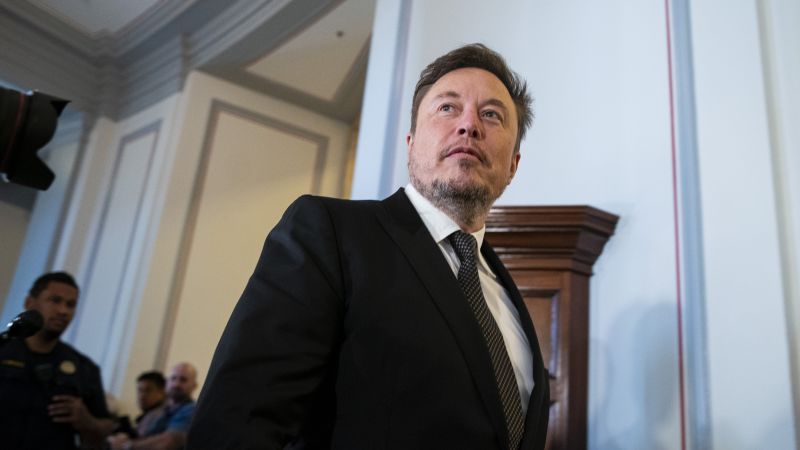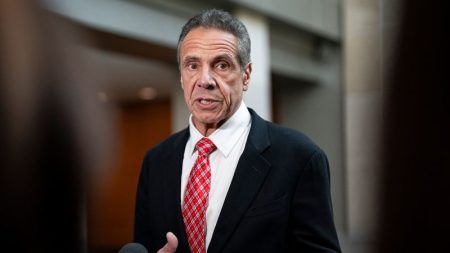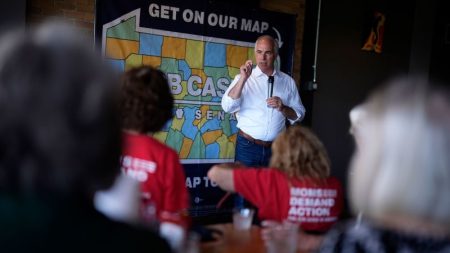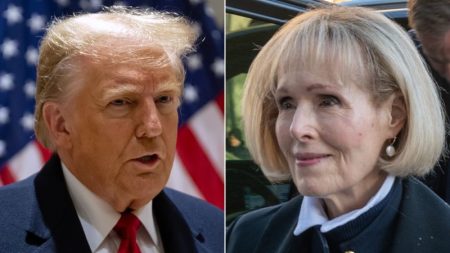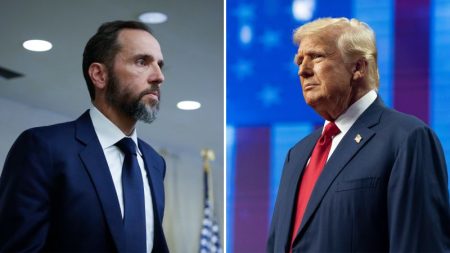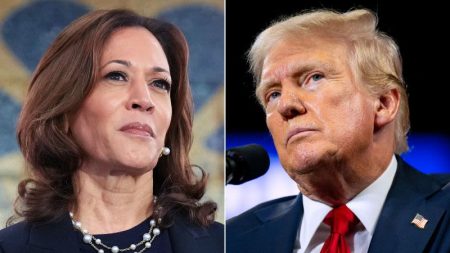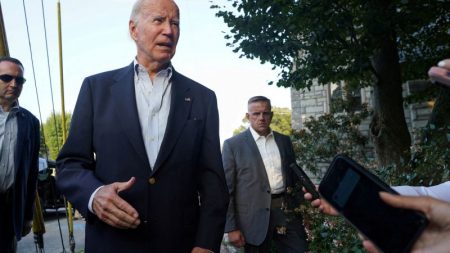A version of this story appeared in CNN’s What Matters newsletter. To get it in your inbox, sign up for free here.
Condemning Elon Musk is easy. Quitting him would be very hard, especially for the US government, which is stuck in a needy relationship with the billionaire who went from endorsing crackpot conspiracy theories to endorsing antisemitic tropes.
NASA needs his rockets. The Pentagon needs his satellites. The government needs for electric vehicles to access his network of chargers. Officials need his social media platform – Twitter, now called X – to communicate with people.
On Friday, the White House joined the uproar over Musk’s endorsement of an antisemitic conspiracy theory on X. “We condemn this abhorrent promotion of Antisemitic and racist hate in the strongest terms, which runs against our core values as Americans,” spokesman Andrew Bates said Friday. If you want to read the entire statement, Bates posted it on X.
The statement is in line with the uproar over Musk’s forwarding of the antisemitic trope. A large number of companies, including CNN’s parent company Warner Bros. Discovery, have said they will suspend advertising on X.
There have been calls for Musk to be suspended from the publicly traded company, which he bought for $44 billion last year and then gutted of its safeguards against misinformation and hate speech.
On Monday, the White House announced it would be joining X rival Threads, which is owned by Meta, as backlash to Musk intensifies.
The New York Times smartly points out that while the views Musk shared are abhorrent to the White House, the government’s national security apparatus and space programs are essentially “addicted” to Musk’s SpaceX.
“Rarely has the U.S. government so depended on the technology provided by a single, if petulant, technologist with views that it has so publicly declared repugnant,” wrote David Sanger and Eric Lipton. “And yet, by the account of administration officials, they have no choice — and will not for a while. Because there are, right now, few viable alternatives.”
John Kirby, the National Security Council coordinator for strategic communications, acknowledged the importance of what SpaceX offers when he was asked about the government’s reliance on Musk during a White House press briefing on Monday.
“There’s innovation out there in the private sector that we’d be foolish to walk away from,” Kirby said, adding there are no plans “to address our concerns over his rhetoric through the way that his companies provide support to our national security establishment.”
And then Kirby added: “But that doesn’t mean that we accept or agree with or condone in any way that antisemitic rhetoric that he pushed.”
The Times reporters argued there is no alternative company NASA could turn to for the rockets SpaceX launches.
The Pentagon just recently agreed to a deal with SpaceX to pay $70 million for Starshield, a communication system based on the Starlink system of thousands of satellites. Ukraine’s military is completely reliant on Starlink for internet and battlefield communications.
Musk faced backlash a year ago when he had complained about the cost of that service. In June, the Pentagon announced it would pay for Starlink in Ukraine.
In a statement on Monday to CNN’s Kristin Fisher about Musk and the Pentagon’s reliance on his companies, a defense official said simply, “The department condemns all forms of antisemitism.”
See moment SpaceX launched world’s most powerful rocket.
The government has paid SpaceX many billions of dollars over the years, but how much it is paying for Starlink in Ukraine, as one specific example, is not clear.
Pentagon spokesman Gen. Pat Ryder told reporters back in September that the military has been transparent in that it acknowledges it pays Starlink for services in Ukraine, but “for operations security reasons due to the critical nature of these systems, we’re just not going to be able to provide additional information regarding the specific capabilities or the operational details of these services.”
Defense Secretary Lloyd Austin is actually in Ukraine meeting with officials there about US assistance to the country. He’s been posting pictures and statements about the trip on X.
CNN’s Chris Isidore has written about how much of Musk’s own fortune has benefited from business with the government, certainly through SpaceX, which was once saved by a loan from NASA.
Tesla, Musk’s electric car company, was subsidized by taxpayers in multiple ways, including with loans and tax credits to encourage people to buy electric vehicles. Much of its revenue comes from selling regulatory carbon credits to other car companies so they can be in compliance with emissions rules in some states.
Tesla’s nationwide charging infrastructure is an important part of the national infrastructure for electric vehicles. The White House bragged early this year that after months of negotiations, Tesla would open up part of its charging network to non-Tesla EVs.
It all means that while Musk’s words are rightly being condemned and companies are making the point of suspending advertising on X, he is very much woven into the fabric of the country.
Read the full article here
